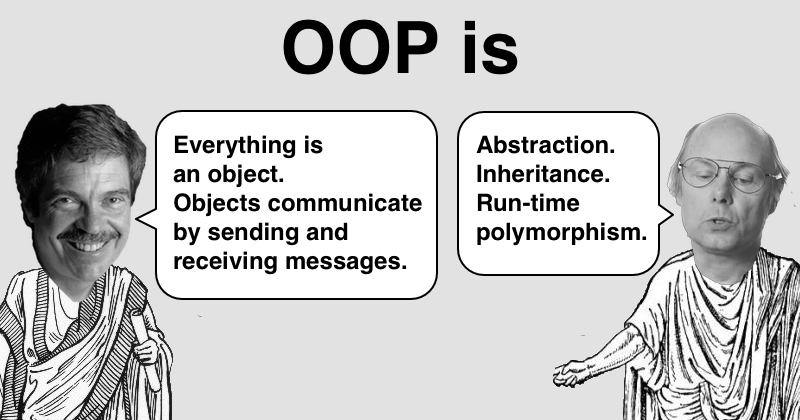Hello,
Here is the question itself - I need to show (and see) examples of really good OOP code that will satisfy nearly all object oriented concepts and will be actually usefull in terms of functionality. It's imortant for me, it shuld give good impression for people how harass my code and tell to be more object-oriented, but my code itself is more scriptting-stylish and it defennetly won't satisfy anyone who in OOP
Please help me, it will save my life, literraly.
It's not for interview, just the question of lifetime depression.
Here is the question itself - I need to show (and see) examples of really good OOP code that will satisfy nearly all object oriented concepts and will be actually usefull in terms of functionality. It's imortant for me, it shuld give good impression for people how harass my code and tell to be more object-oriented, but my code itself is more scriptting-stylish and it defennetly won't satisfy anyone who in OOP
Please help me, it will save my life, literraly.
It's not for interview, just the question of lifetime depression.



